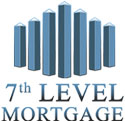Do you dream of buying a home with a large yard or escaping the endless cycle of rent? You can purchase your own home, but for most, it requires financing from a lender. There are many types of loans for your mortgage, but two of the most common are Federal Housing Authority and conventional loans.
When it comes to FHA vs. conventional loans, each has pros and cons, so it is essential to know which is the best for your situation. We put together this guide to help you understand the difference. You can make an educated decision on the perfect loan for you.
FHA vs. Conventional Loans: The Loans Themselves
You need to get both types of loans from a lender. You can get a conventional loan from most lenders and banks, but you need to find an authorized lender for FHA loans.
FHA loan is a bit of a misnomer. You do not get a loan from a government agency. The loan comes from the bank, just like a conventional loan, but it is guaranteed by the government.
With a conventional loan, you talk to a lender, and if you qualify, they give you a loan. When they give you the loan, the lender takes a risk. If you default on the loan, they risk not getting their money back.
A lender forecloses on the home, but they do not want to own and take care of it. They want you to complete your loan, so they get their money plus interest.
With an FHA loan, the government guarantees the loan, so the government covers the difference and pays the bank if you default. This guarantee decreases the bank’s risk but requires more hoops to jump through since it’s a government program you must qualify for.
Qualifying for FHA and Conventional Loans
A conventional loan is not connected to any special programs. When you visit a lender, you provide proof of income and how much of a down payment you have. The larger your down payment, the more likely you’ll qualify for a conventional loan.
The lender takes the information and examines your credit score and report. If you have a good credit score, generally 700 or higher, you will likely qualify with a reasonable interest rate. Your credit report details how much debt you currently have, including school loans, credit cards, car loans, etc.
The better you manage your debt, such as paying on time and not having too much debt, the higher your credit score. You can still get a conventional loan with a lower credit score, but you’ll need a higher down payment and have a higher interest rate.
An FHA loan is designed for low to middle-income families who might not otherwise qualify for a conventional loan. You provide the same information you would for a conventional loan, but the down payment is smaller, and you can get better rates for a lower credit score.
There are several types of FHA loan programs, but only the 203(b) loans deal with mortgages. The others deal with home improvements, reverse mortgages, and energy efficiency.
Down Payments for FHA and Conventional Loans
Almost every loan requires a down payment to qualify. The higher the down payment, the less risk there is to the bank because they must loan less money. Conventional loans often require a minimum down payment of 10 percent, but people with lower credit scores may require as much as 20 percent to qualify. Even with a 20 percent down payment, lower credit scores still have higher interest rates.
With an FHA insured loan, the down payment is a minimum of 3.5 percent for people with credit scores of 580 or higher. For those with a credit score between 500 and 580, the down payment goes up 10 percent. You can always provide more than what is required to qualify for a loan.
In addition to the down payment, a loan requires FHA mortgage insurance if you provide less than 20 percent down. This fee is paid at closing and then yearly for the term of your loan.
A conventional loan often requires private mortgage insurance, but that stops after you have 20 percent equity in the home.
FHA and Conventional Loan Limits
With a conventional loan, the limit is determined by your down payment, debt, and income. If you make enough money to meet the other requirements, then you can get loans for millions of dollars if needed.
FHA loans have limits depending on the area where the person lives and the type of home purchased. For example, if the person lives in a lower cost of living area, the limit may cap at around $300,000. If the person lives in a high cost of living area, such as New York City or Los Angeles, the cap can be around $760,000.
Conventional Loan Rates vs. FHA
When buying a home, the lower the interest rate, the better. A conventional loan interest rate depends on your down payment and your credit score. People with higher credit scores get better interest rates because they pose less of a risk.
Lower credit scores have substantially higher interest rates because of their increased risk of default. FHA loans allow for people with lower credit scores to have lower interest rates.
Since the government backs the loan, the bank’s risk lowers, and they offer lower rates. Once again, a higher down payment can bring the interest rates down further.
Conventional Loan Vs. FHA
When it comes to FHA vs. conventional loans, FHA loans have many benefits for people who would typically not qualify for home loans. If you’re not a first homeowner, have great credit, or a higher income, then you’ll likely want a conventional home loan.
Do not let a low credit score keep you from the home of your dreams. Examine this guide and see which loan works best for you.
If you want more information about the advantages of the FHA loan vs. conventional, please contact our experts today.
7th Level Mortgage is a leading one-stop mortgage company providing deeply informed, custom-tailored assistance with each mortgage transaction phase. If you are searching for a home loan in New Jersey, Pennsylvania, Virginia, Delaware, Maryland, New York, or Florida, please contact us today so that we can determine the best Mortgage Lender to place your loan with and get you the best possible rate and program.

